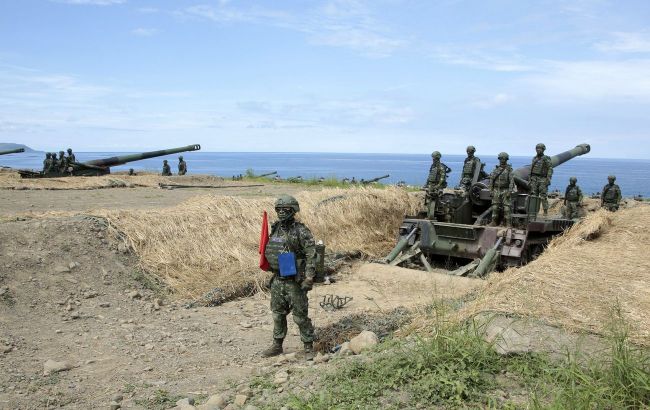China reacts sharply to US arms sale to Taiwan
 Photo: China continues to intimidate Taiwan with military drills (Getty Images)
Photo: China continues to intimidate Taiwan with military drills (Getty Images)
Chinese aircraft and ships conducted combat patrols near Taiwan in response to the United States' sale of a large weapons package to Taipei, according to Reuters.
According to Taiwan's Ministry of National Defense, Chinese warplanes and warships carried out another combat patrol near the island after Beijing threatened to take countermeasures against a $2 billion arms sale from the United States.
Starting Sunday morning, the Taiwanese military detected 19 Chinese military aircraft, including Su-30 fighters, conducting a "joint combat readiness patrol" around Taiwan alongside Chinese military ships.
Chinese aircraft flew in airspace to the north, center, southwest, and east of the island. Taiwanese forces were dispatched to monitor them.
China carried out such patrols around the island several times a month. However, this occurred for the first time after Beijing held a new round of large-scale military exercises near the island earlier this month.
Arms sale deal
On Friday, October 25, the US approved a $2 billion arms package for Taiwan. This package included the shipment of advanced NASAMS air defense systems, which have been tested in Ukraine.
The Taiwanese government welcomed this 17th military aid package during Joe Biden's presidency.
"In the face of China's threats, Taiwan is duty-bound to protect its homeland and will continue to demonstrate its determination to defend itself," Taiwan's foreign ministry said on Saturday, responding to the arms sale.
China's Foreign Ministry condemned the recent sale of US arms and sent "solemn representations" to Washington.
Beijing urged the US to immediately stop arming Taiwan and cease its dangerous actions that undermine peace and stability in the Taiwan Strait, the ministry added.
Over the past five years, China has intensified its military activity around democratically governed Taiwan, whose government rejects Beijing's claims of sovereignty.
The United States is legally obligated to provide Taiwan, which China claims, with defensive resources, despite the lack of official diplomatic relations that consistently anger Beijing.
Earlier, Chinese President Xi Jinping called for the military to intensify preparations for war without specifying against whom these preparations might be directed.

